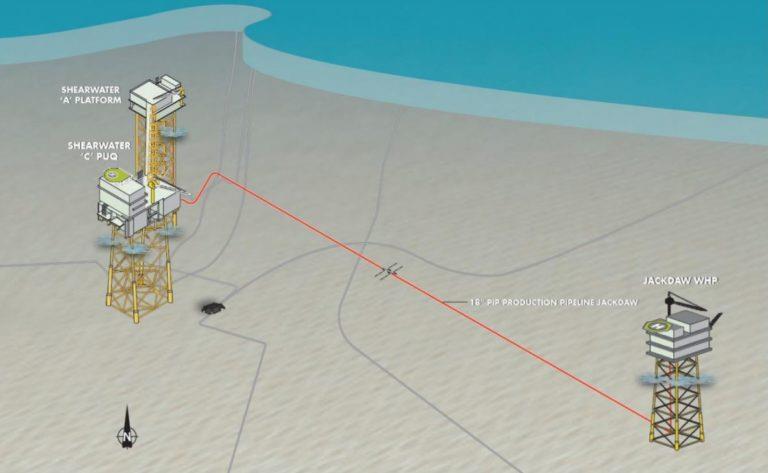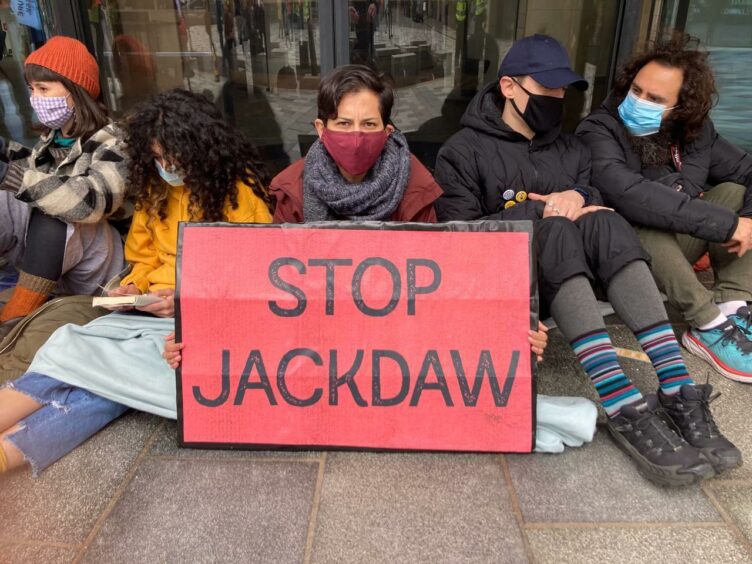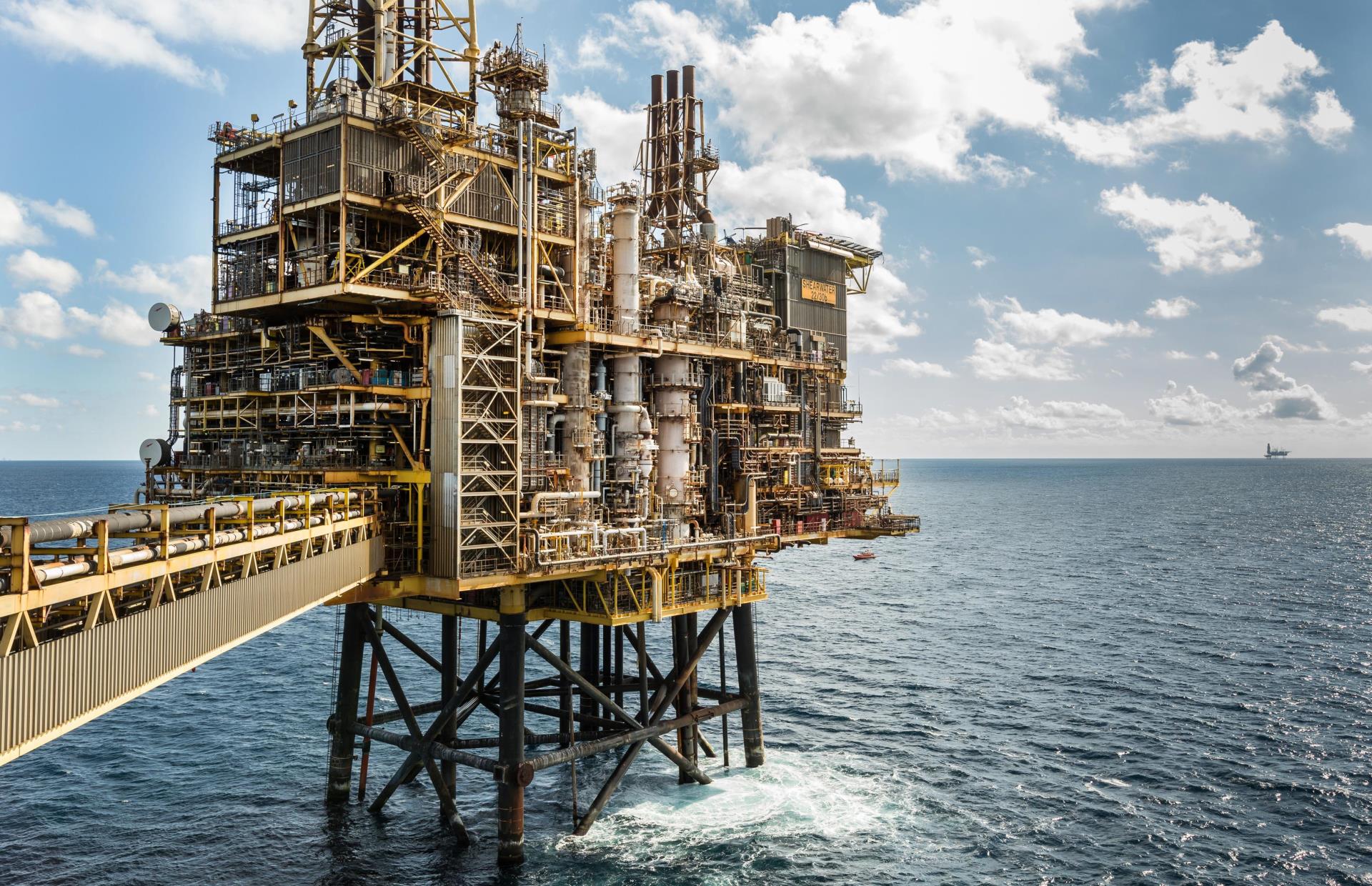
Shell (LON: SHEL) has received approval to forge ahead with the development of the Jackdaw gas field in the North Sea.
Both the North Sea Transition Authority (NSTA) – formerly the Oil and Gas Authority – and the Offshore Petroleum Regulator for Environment & Decommissioning (OPRED) have green lit the project.
The announcement marks a a major milestone for the project, the future of which looked uncertain after OPRED blocked its progression last year on environmental grounds.
Shell has previously said that at its peak, the field could account for 6.5% of UK gas, with the aim of first production in Q3-Q4 2025.
As much as half a billion pounds could also be spent in the UK as a result of the project.
Jackdaw is one of the beneficiaries of Westminster’s drive to boost domestic energy sources as it seeks to replace Russian imports. The North Sea currently produces enough gas to meet just under 40% of the UK’s demand, with the remainder sourced from imports.
Jackdaw gas field – originally licensed in 1970 – has today received final regulatory approval.
We're turbocharging renewables and nuclear, but we are also realistic about our energy needs now.
Let's source more of the gas we need from British waters to protect energy security.
— Kwasi Kwarteng (@KwasiKwarteng) June 1, 2022
In a post on Twitter, the UK’s business secretary Kwasi Kwarteng said: “Jackdaw gas field – originally licensed in 1970 – has today received final regulatory approval.
“We’re turbocharging renewables and nuclear, but we are also realistic about our energy needs now.”
However, approval of the development sets the scene for another showdown between the oil and gas industry and environmentalists.
Much has been made of the attempt to block the Cambo development in recent months, and a similar group dedicated to stop Jackdaw was formed earlier this year.
In an April demonstration in Edinburgh they called on Prime Minister Boris Johnson to “reject Jackdaw and all new oil and gas fields.”
Campaign groups, including Uplift, have also claimed the project will do nothing to alleviate soaring energy bills.
Following news the field had been approved, Greenpeace tweeted to say it was considering taking legal action as it believes the decision could be unlawful.
🚨BREAKING: The UK government has granted Shell a new permit to extract gas from the Jackdaw field.
We believe permit approval could be unlawful, and are considering taking legal action.
More to come soon. #StopJackdaw
— Greenpeace UK (@GreenpeaceUK) June 1, 2022
In a statement, a Shell spokesperson said: “Having initiated Jackdaw a number of years ago, we welcome the consent received today. We plan to move ahead with the project, which has the potential to produce 6.5% of UK gas production at a time when UK energy security is critically required.
“Responsibly produced, local gas production plays an essential role in the UK’s transition to net zero, will support thousands of jobs and forms part of Shell UK’s broader intent to invest £20 to £25 billion in the UK, with 75% intended for low and zero-carbon products and services.
“However, as we have repeatedly stated this can only happen with a stable fiscal policy and we continue to look to the government for those assurances.”
Judy vs Shearwater
Shell first submitted plans for the gas development in May 2021, but its initial approach was knocked back by the Offshore Petroleum Regulator for Environment and Decommissioning (OPRED) last October on environmental grounds.
In its correspondence, OPRED at the time questioned why Shell hadn’t opted to tie-back the field to the Harbour-operated Judy installation, instead of the proposed route via Shearwater.
Shell, meanwhile, argued that export via Judy would “ultimately result in the same volume of CO2 emissions (offshore and onshore)”, but the long-term benefits of producing via the Shearwater platform made this the better decision.
Today’s decision appears to vindicate the original approach, granting Jackdaw to produce via a new 31km (19-mile) 12” pipeline to the Shearwater platform. Fluids will be processed there, with gas exported via the Fulmar Gas Line (FGL) and condensate via the Forties Pipeline System (FPS).
The approval is contingent on four additional requirements, which relate to limiting and controlling CO2 venting as a result of the development.
This includes adding a meter to the new amine unit vented emission point, and a requirement that wells related to other fields tied back to Shearwater must be phased so as to minimise the cumulative mass of CO2 vented from Shearwater over Jackdaw’s field life.
In addition, the design of the Jackdaw platform must include “space and weight capacities and J-tube to accommodate an electrification retrofit should green power become available.”
Recommended for you

 © Supplied by Uplift
© Supplied by Uplift © Supplied by Shell
© Supplied by Shell